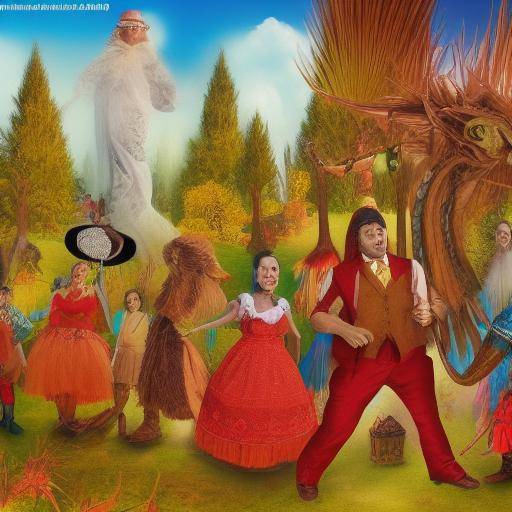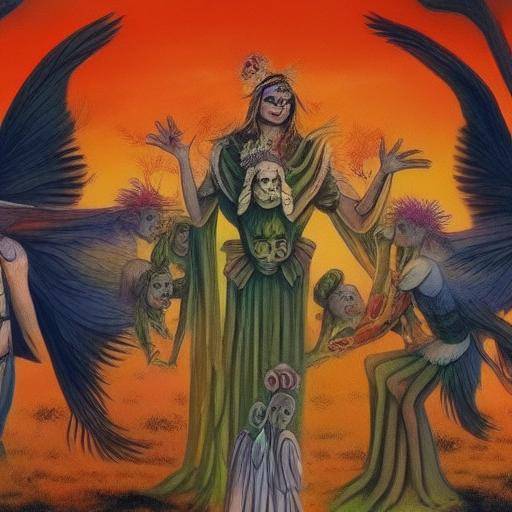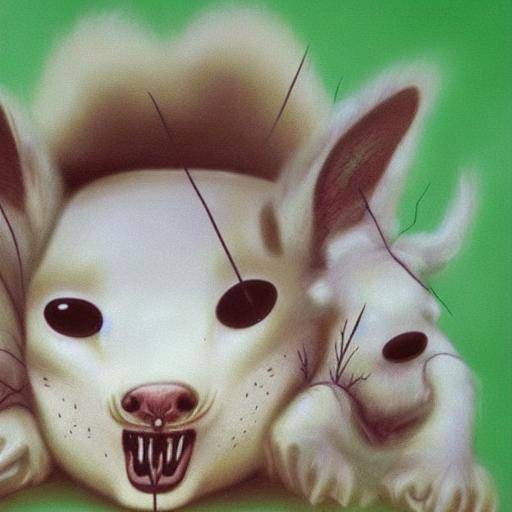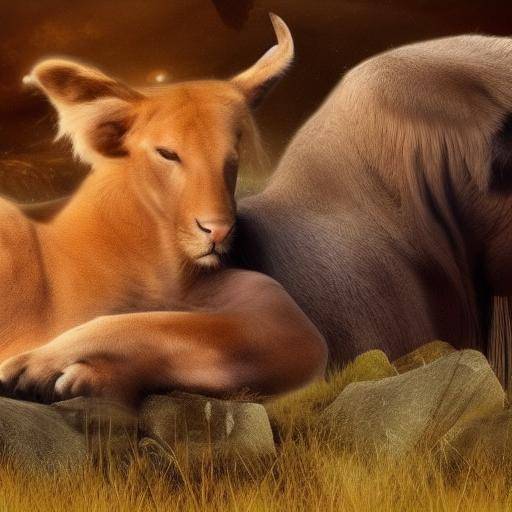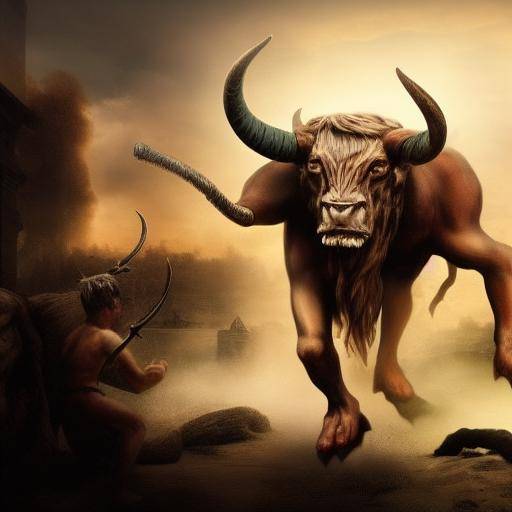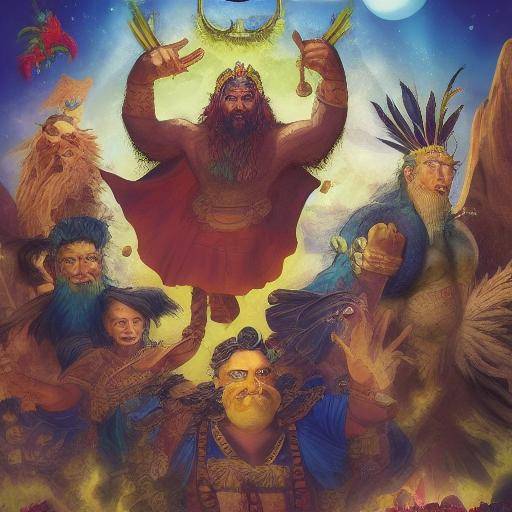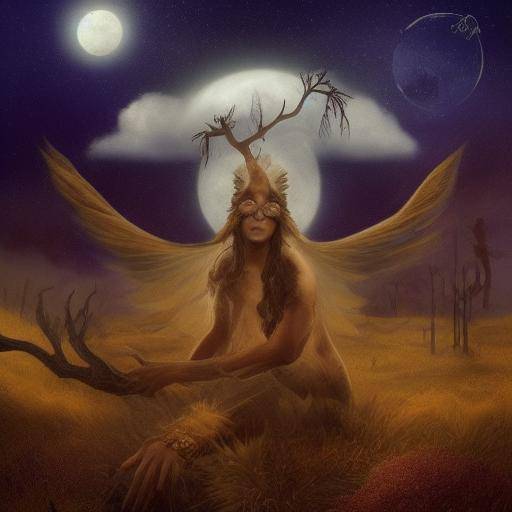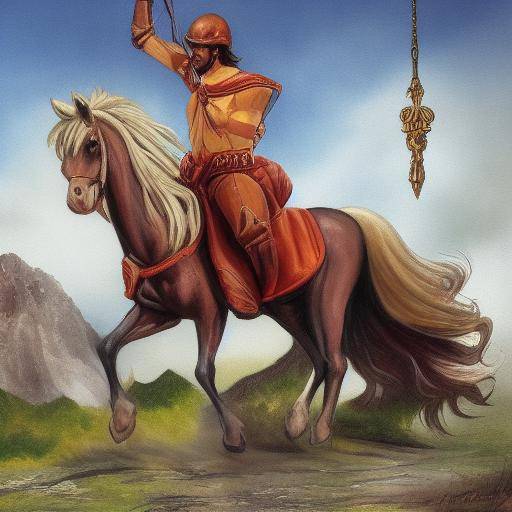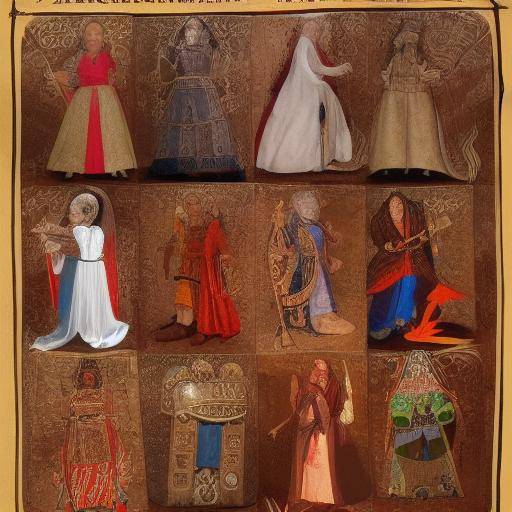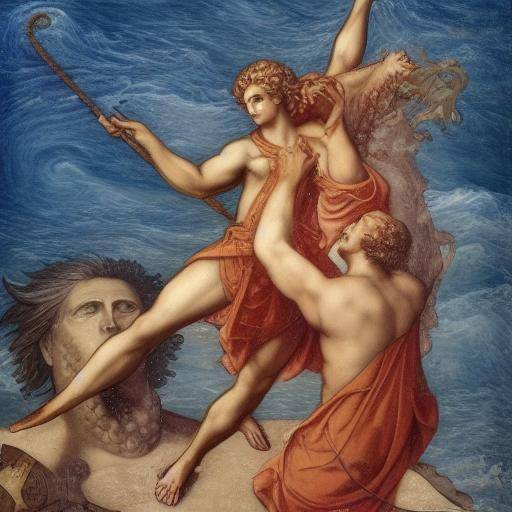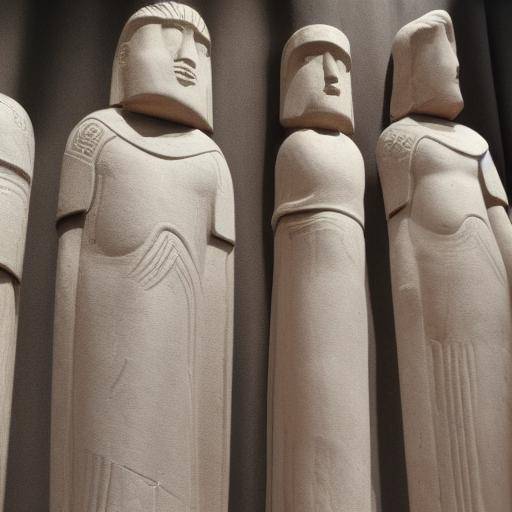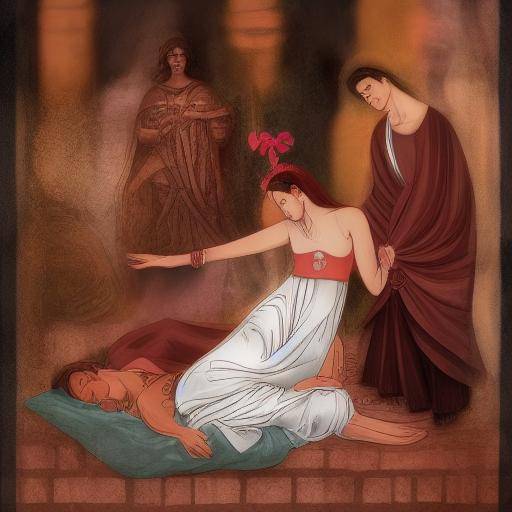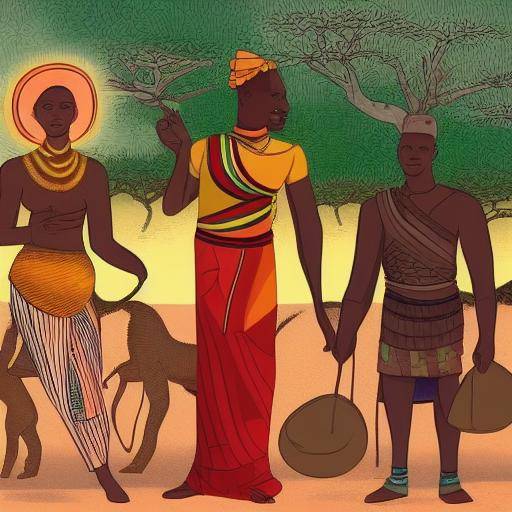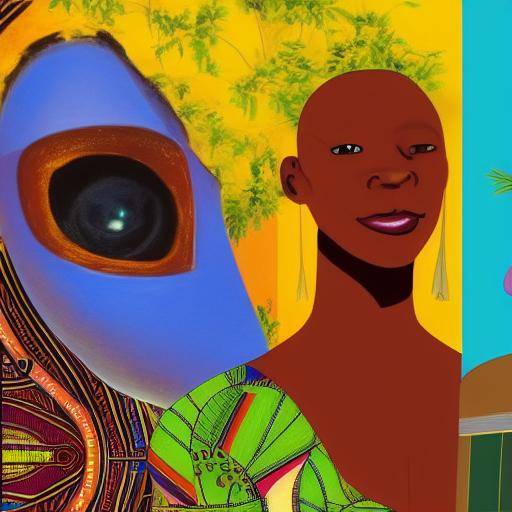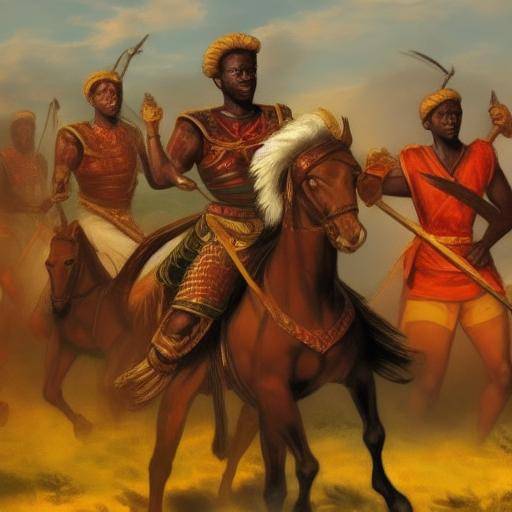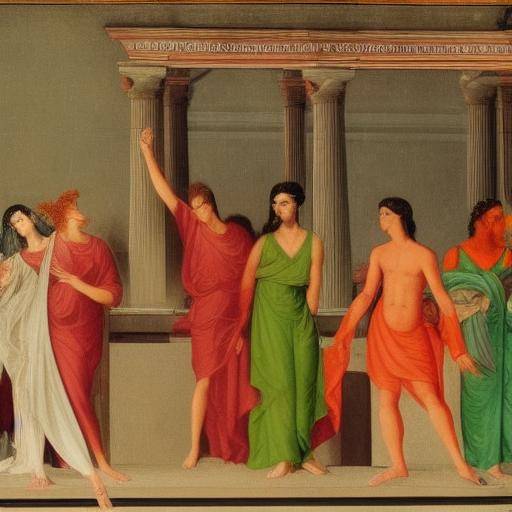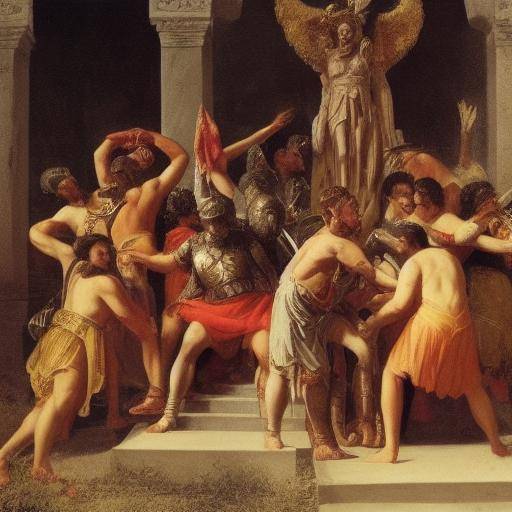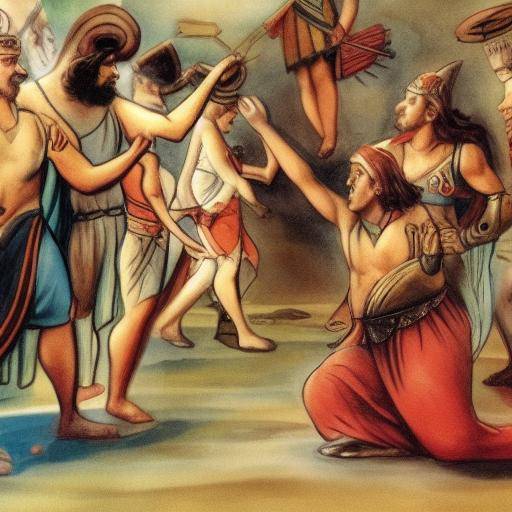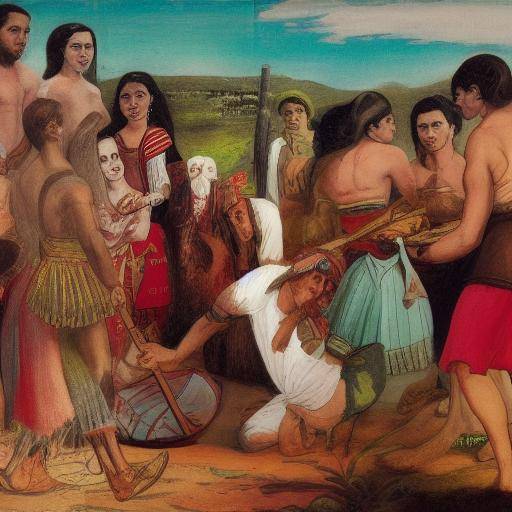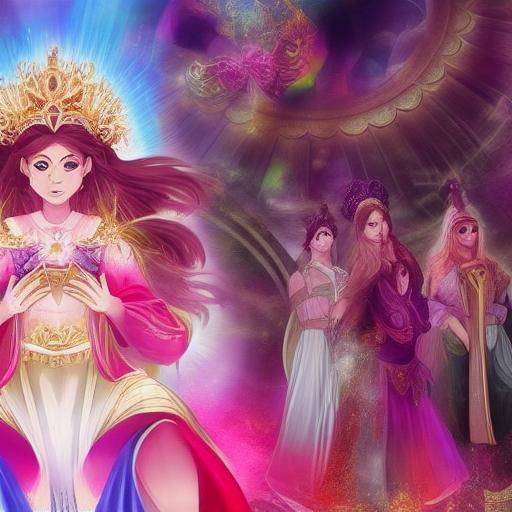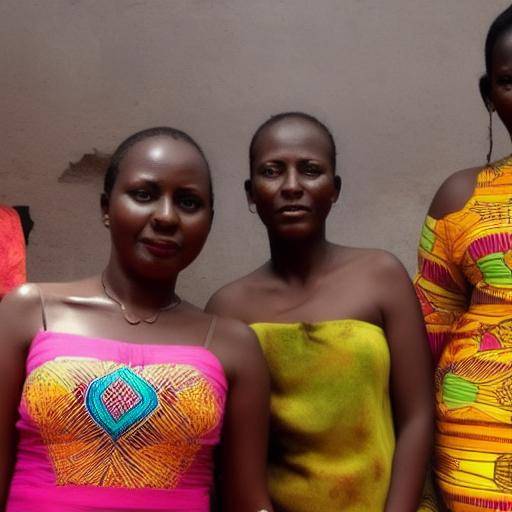
Introduction
African culture is rich in traditions, beliefs and practices that have been transmitted over generations. Among these, totems and fetishes occupy a special place. In this article, we will explore the meaning and importance of totems and fetishes in African culture, as well as their relationship with mythology. We will discover its history, contemporary meaning, applications, and explore future trends and predictions related to these aspects of African culture.
History and Background
Totems and fetish have deep roots in African mythology and traditions. They go back to ancient times, where African tribes and civilizations attached great importance to the connection with nature and spirits. These sacred objects were used to represent animals, natural elements or guardianship spirits that protected and guided the community.
Throughout history, totems and fetishes have evolved along with African societies, adopting new forms of expression and meaning. In fact, their influence has been so profound that even in the modern era they continue to play a crucial role in the identity and worldview of African cultures.
During colonization and slavery, the totems and fetishes were vilified and misunderstood by the conquerors, which led to much of their knowledge being lost or transmitted in secret. However, they persisted in traditional practices and are currently experiencing a rebirth in both local and global interest.
Analysis in Deep
Meaning and Current Importance
Today, totems and fetishes continue to play a crucial role in everyday life, ceremonies and beliefs of many African communities. They have also gained recognition as important elements of the cultural identity and the African worldview in general.
Its presence extends to areas such as art, traditional medicine, spiritual protection, and the preservation of cultural heritage. They have also become symbols of resistance and preservation of identity against globalization and sociocultural changes.
Current Challenges and Trends
Despite their roots in African traditions, totems and fetish face challenges in the modern context. Urbanization, the influence of imported religions and globalization have challenged their relevance and continuity. However, this scenario has led to the adoption of innovative approaches to preserving and revitalizing these practices, such as the integration of modern technologies in the creation and dissemination of totems and fetishes.
Full review
Applications and Best Practices
Totems and fetishes are used in a multiplicity of contexts, from personal protection to the celebration of rituals and festivities. As African communities navigate the challenges of modernity, the role of the totems and fetishes has also evolved, finding new relevance in cultural preservation, identity and resistance against external pressures.
Perspectives of Future Experts and Trends
Experts on anthropology, sociology and cultural studies have emphasized the importance of understanding and preserving the relevance of the totems and fetishes in the current African context. In addition, future trends suggest greater appreciation and academic study of these practices, as well as their inclusion in global intercultural dialogue.
Comparative analysis
African totems, mythology and fetishes share a close relationship. Mythology offers the framework of understanding of the totems and fetishes, while the latter become tangible substances of mythological narratives. Although each has its own distinctive characteristics, its interconnection reveals a complex and meaningful synthesis within African culture.
Practical Tips and Useful Recommendations
For those interested in understanding and appreciating the totems and fetishes in African culture, it is crucial to address them with respect and sensitivity. The depth and importance of these practices require an attitude of openness and empathy to their meaning, as well as a recognition of their intrinsic value as an integral part of African cultural heritage.
When visiting communities that keep these traditions, it is essential to seek the guide of respected members or local cultural leaders to properly understand their meanings, protocols of interaction and how to show respect. The key to an enriching experience lies in the willingness to learn receptively and respectfully.
Perceptions of Industry and Expert Reviews
The views of experts and industry perceptions have been fundamental in the resurgence of academic and cultural interest around totems and fetishes in African culture. The inclusion of these perspectives offers a holistic and enriching view of its relevance, challenges and future within the African cultural landscape.
Case Studies and Practical Applications
The real impact of the totems and fetishes is manifested through case studies. These examples illustrate how these practices continue to influence everyday life, rituals, art and the preservation of culture in various African communities. In deepening these case studies, it is clear that totems and fetishes remain fundamental to the understanding of the world and identity in Africa.
Future Trends and Predictions
The future of the totems and fetishes in African culture is marked by renewed interest both locally and internationally. As African communities strive to reconcile ancestral traditions and modernity, these cultural elements are expected to acquire new meaning and application. It is likely that its importance remains crucial in the preservation and projection of African identity in a constantly evolving world.
Conclusion
In short, totems and fetishes represent intricate and significant elements in African culture, whose meanings and applications transcend time and space. Their contemporary relevance, together with their roots in African mythology and worldview, makes them invaluable pillars of traditions and identity. In understanding and appreciating the depth of its meaning, a window opens to the richness and diversity of African culture.
Frequently asked questions
1. What is the difference between a totem and a fetish in African culture?
Totems in African culture often represent animals or natural elements that symbolize the identity and lineage of a person or group. On the other hand, fetishes are objects that are believed to have supernatural powers and are used for specific purposes, such as healing or protection.
2. What is the role of the totems and fetishes in the daily lives of African communities?
Both totems and fetish play a vital role in the daily lives of many African communities. They serve as symbols of identity, spiritual protection, connection to nature and guide in important decisions.
3. How are the totems and fetishes adapting to the modern era?
In the modern era, totems and fetishes are experiencing adaptations to maintain their cultural relevance, including the incorporation of technology in their designs and the promotion of their meaning through contemporary media.
4. Can you find totems and fetishes outside of Africa?
Although totems and fetishes are especially significant in African culture, similar concepts of objects with symbolic or supernatural powers are found in diverse cultures around the world. However, it is important to differentiate and respect the unique specificities and meanings associated with African totems and fetishes.
5. How can non-Africans learn and properly appreciate African totems and fetishes?
Understanding and respect are fundamental to those who want to learn about African totems and fetishes. It is crucial to approach these practices with humility, showing a genuine interest in understanding their cultural significance, as well as respecting protocols and traditions in their interaction with them.
6. What is the impact of urbanization on the preservation of the totems and fetishes in African culture?
Urbanization and globalization have posed significant challenges for the preservation of totems and fetishes in African culture, but they have also led to the adoption of innovative approaches to preserving and revitalizing these practices in a modern context.
With this complete exploration of the totems and fetishes in African culture, its historical importance and its contemporary relevance have been delineated. Through their connection to mythology and their presence in everyday life, these cultural elements continue to play a crucial role in African identity and worldview, while facing changes and adaptations in the modern world.

